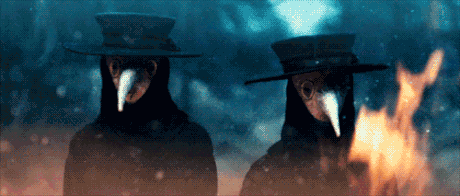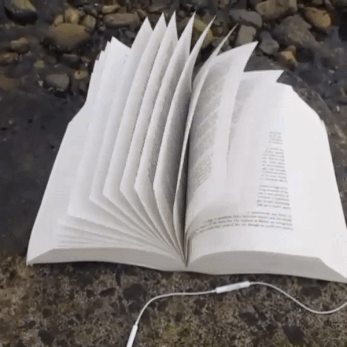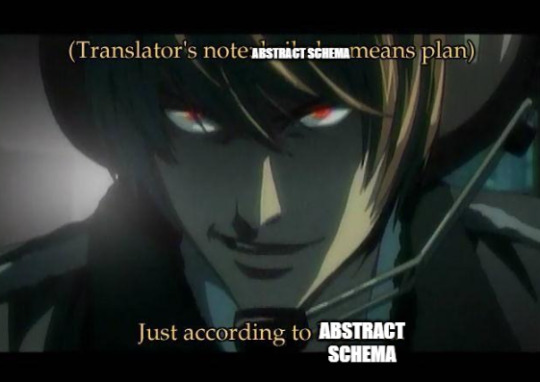Humanities ScholarSpeculative Fiction // Queer Theory // Critical Disability Theory
Don't wanna be here? Send us removal request.
Text
This is so cool! I love that it uses something kids already know - seems like a cool intermingling of game and learning culture that capitalizes on a skillset kids already have though I feel like many recall games are really about motivation rather than changing a mechanism of learning and I'm not sure if that is a limitation or benefit of GBL.
Learning Recall
As a teacher, I feel like most of the digital games that we utilize in our classrooms utilize learning recall. Kahoot, Quizlet (which then can be exported to websites such as Blooket), etc. Kahoot is now considered to be the "least favorite". Blooket does a nice job of utilizing mini-games though. For example, one of the games on Blooket is Balloon Tower Defense. It take a game that kids are familiar with and enjoy on their chromebooks and then implements a series of questions to help them recall information. If they get the answers correct, they are able to upgrade their defense teams on the game.

1 note
·
View note
Text
I think GBL extends beyond video games so hopefully neither of us will need to learn how to code lol
One of my fav parts of this chapter was the author's conclusions about how games build identity/community and how this impacts students ability to succeed (and fail). One of my biggest issues with standardized tests is that it doesn't leave room for the reality of playing and learning that is learning through failure. Standardized tests don't leave room for the iterative process of learning through failure which has entered discussions of pedagogy through thinks like "academic risk-taking" research.

Dr P Check in Post Part 1: GBL Chapter 7 Question
Steinkuehler and A. M. Tsaasan write, “Some classroom teachers are beginning to challenge ‘standardization’ head-on not only by engaging with customizable interactive curriculums like Atlantis Remixed but also by learning to build games that serve the needs of their specific student communities” (195).
I too am no fan of a standardized approach to education. Yet, when it comes to video game design, I am extremely limited. Do you see teachers in the future learning about video game design? In other words, should I “learn to code”?
1 note
·
View note
Text
Chapter 7: Mangle of play is an interesting concept that includes player culture - share an example of players culture manifesting in play (video or board game). Explain an interesting element of learning possible because of that manifesting #writ671mu
There is an interesting example of mangle of play behavior modeled in an incident known as “The Corrupted Blood Incident” https://en.wikipedia.org/wiki/Corrupted_Blood_incident in which a bug created a fictional plague within World of Warcraft that has now been used as a case study in quite a few scholarly papers to understand the COVID-19 pandemic. By analyzing player behavior during this well-documented virtual plague, researchers have attempted to better understand human behavior and psychology during the pandemic and refine statistical models for infection predictions.

0 notes
Text
Chapter 1: Violence in videogames was often used as a reason games = bad. There are so many directions that argument goes, so games = bad is a summary. This idea has influenced so much work in justifying the use of games to support learning. How do you see this idea influencing the work of Chapter 1? Is this still something scholars should discuss? Why or why not? #writ671mu
Play theory is partially built upon a response to the trivialization of the concept of play itself. As Huizinga writes of early play theorists “they all start from the assumption that play must serve something which is not play, that it must have some kind of biological purpose” (2). This sentiment mirrors arguments that writing is most beneficial in service to other disciplines revealing the first level of reductive reasoning that doesn’t view play/writing as having value in and of itself. And this may be the crux of the matter: the devaluation of certain types of media is an extension of the idea that writing in and of itself is meaningless.
So continuing to address video games is part and parcel of continuing to justify the value of the humanities and is a conversation that I think will continue to be with us for some time. Honestly, the opening statistics from CH1 with the high level of video game engagement show just how important defending this connection could be to regaining public understanding and value for the humanities.

1 note
·
View note
Text
Chapter 2: Share an example of a game that supports good higher order thinking skills - briefly explain/discuss #writ671mu
I love playing Codenames that is an awesome blend of recall and creative thinking skills that works by how well you know your discourse community. It involves word association but to an even greater extent relies on how well you know how your teammates think as the goal is not only to have them pick the words you need for your team but also avoid words for the other team and the assassin card that will end the game for everyone.

0 notes
Text
Dr. P Check-in Post Module 4 part 2
I’ve been thinking again about the links between Play and academic Risk-Taking with the added elements of how a “sense of belonging” that explores the interplay of community and identity are so related to what we’ve been reading about play. Here is a snippet of what I’ve written about it
Play involves elements of risk and the ability to imagine possible outcomes (a key point in Dr. Mando’s talk and article). The biggest idea play can contribute to further the theory of academic risk-taking is that play tells us to try again. The scholarship of risk-taking recognizes that there isn’t always an opportunity in our education for students to try again so sometimes, they don’t try at all as the risk of a poor grade or worse is too heavy. So, building the link between failure in play that sees “success (and failure) is a collective interdependent achievement” and as an iterative learning process can help situate the bond between play and grad learning with the recognition that building a sense of belonging is not only a metric of individual success, but also of the community and culture of grad learning (Steinkuehler and Tsaasan 187).

0 notes
Text
Dr P Check-in Post Part 1 - CH7/20 Failure + Collaboration #writ671
CH7 and 20 both emphasize the importance of community (and collaboration) in shaping feedback systems and in turn, building expertise. I think this may be a component that has been missing in other discussions of failure/risk-taking (ie community empathy). CH 20 in particular has made me rethink some of my attitudes towards instruction/play that encourages vulnerability as something that isn’t handed down from the top but is built through mutual gameplay. This seems like a (necessary) complication to theories of failure that is harder to translate to a classroom setting – any thoughts/tips?

0 notes
Text
Dr P Check-in Post Part 1 - GBA #writ671mu

One of the repeating questions that is coming up for me is how authors are balancing (or not) student agency in game-based learning. I understand that assessment is a part of education for many good reasons but things like “stealth assessment” seem somewhat antithetical to learning. For example, one of the big ideas that our conversations return to again and again in grad ed is the “hidden curriculum” or the skills that many institutions assume grad students will have or gain that are not explicitly part of academic evaluation but are critical to success. While the author’s argument that GBA and stealth assessment could be used to measure skills/knowledge that is difficult to measure through more traditional assessment, it would def need to be balanced with some kind of reflection to help students understand the skills/knowledge they are building or they may have difficulty later accessing the “hidden curriculum” of higher ed.
0 notes
Text
What is Grad Writing - Module 3 #writ671mu
Here is my opening paragraph and a brief plan for my essay - let me know what you think!!
Graduate writing takes place in a liminal space. It’s liminality is derived from the synchronous act of existing in the past, present, and future of the writer. While this may be true of all writing, graduate writing seeks an acute awareness of this temporal coexistence through discussions of pedagogy and skills that look at metacognition. This paper delves into the three levels of temporal existence in graduate writing and what they mean as a synchronous whole to create a definition of graduate writing that centers the experiential nature of graduate writing. As such, this graduate writing can be seen as an expanding horizon of disciplinary knowledge that recognizes and applies diverse methods and frameworks on multiple levels of audience familiarity with a distinct awareness of the processes and ideologies that go into this work.
To more fully understand this definition of graduate writing, here is my basis for a definition of writing itself. Writing is an iterative process of organizing, construction, and assessing knowledge utilizing representational symbols with distinct forms that are built upon cultural and social traditions.
Brief Plan:
Past
Reflection/Metacognition, Portfolio
Present
New and exciting work, texts, media, forms, experiences (conferences, events, speakers)
Future
Professional development
Conscious multiplicity of production
Temporal Integration/Conclusion
Making peace with the knowledge that there is so much more to know
Building and maintaining webs of knowledge and connection
Addressing imposter syndrome
1 note
·
View note
Text
Dr. P Color Game - Module 3 part 2 #writ671mu

Today is blue! Blue skies, blue birds, and a blue police box:) at Who North America in Indiana.
2 notes
·
View notes
Text
Dr. P Check-in Post Module 3 Part 2 #writ671mu
I really liked the Writing Transfer piece and it reminds me a lot of Naming What We Know (themes versus threshold concepts) are these two groups talking to each other? Their conclusions seem too similar to not know about each other, but it’d be cool if they evolved independently too. With how useful these two pieces are—I’m wondering if there is something similar for play that can be distilled into a table like in the Transfer piece (maybe such a think already exists). Sutton-Smith got close-ish with the lists but translating from a list of activities into concepts could be really beneficial.

1 note
·
View note
Text
Original Content Writing - Oscillating play - Module 3 #writ671mu

Summertime always makes me think of going to camp either as a kid or as a counselor and from the evolution of both of these perspectives, I can see the value of Stenros' concept of the oscillatory nature of play. As a kid, I was able to mostly just get lost in the games and activities we had but as a counselor, the playful mindset (that is key to getting the kids involved and excited) is tempered with an unplayful mindset that is keeping an eye on the time and making sure everyone is being safe. It's cool to have some fancy terminology to describe the "dual consciousness" of this type of play but this recognition makes me wonder if this dual consciousness is a consequence of adulthood lol
1 note
·
View note
Text
Dr. P Check-in Gameful World - Module 3 #writ671mu
These chapters and particularly Benson's bring up the role of positive/negative reward pathways in playing that I think is an interesting connection back to Stuart's Ethics as well as creating new links to biology (these terms are frequently used in neurobehavioral studies). With these player-centric theories that focus on play as biological--are we giving something up for this definition? I also notice the focus on the individual was key in the writing outcomes as well though all of these theories in one way or another acknowledge the social aspects of learning and play. I feel like in some ways we are gaining a more refined definition of play in these recent chapters but I'm trying to make it make sense with some of Huizinga's claims and even Stenros' own "spirit of play." I guess both can exist simultaneously (as is common in play characteristics) I just think it is interesting that there seems to be a return to the aspects of play (and writing) that are physical/biological. Is this a tension that is just central to play? We've encountered about 60+ years of theories and all of them seem to share some of this tension.

Sorry --turned into more of a rant than a question
3 notes
·
View notes
Text
Love your questions and Benson's piece makes me question too how many people are approaching mundane life situations as games? And how many life situations may we be somewhat unknowingly entering in a gameful mind? Especially in the context of Stenros's oscillating play theory -- will we ever truly be able when we are and aren't in a gameful mind as it can exist simultaneously?
Dr. P Check-in Gameful World Interstitial Questions
Can everything be approached with a gameful mind? Could doing that be destructive?
How much learning is lost or not done because his game was to get an A-, not actively learn? (I guess this really goes back to the destruction question)
@npfannen

3 notes
·
View notes
Text
Dr. P Color Game - Module 3 part 1 #writ671mu
I am feeling an explosion of orange today - it is my fav color though it can get a bit intense! I'm heading out on a road trip to Colorado and feel like a bundle of nerves and excitement🧡🧡🧡
1 note
·
View note
Text
Love these connections! I also love how this situates the player at the center of play and the writer at the center of writing! Stenros really nails this down in some of his discussion as well with statements like "Playfulness is innate to the player” (203).
Also --Excellent gif choice-Wishbone is the GOAT!!!!!!!
Module #3: Original Content Writing
Connection to 1 play theory and the WPA Outcomes Statement. What can play add to our understanding of writing?
The one theory I go back to is Sutton-Smith’s belief that rhetoric of play is a form of identity. This is so important to me as a learner. I say this because just as the author stated “play tradition is seen as a means of confirming, maintaining, or advancing power and identity of the community of players” (305). Writers have an identity because their words belong to them. They are able to in their own way, “confirm, maintain, or advance the power and identity to the community of readers” because they are able to relate to their audience, make the reader comfortable, and identify.
On the flip side of that is self. This is the “idealized attention to the desirable experiences of the player(s) - their fun, their relaxation, their escape” (305). Let’s be honest. What English major doesn’t have a “fun” book? We all have one! 😄

3 notes
·
View notes
Text
Original Content Writing - Intentionality - Module 3 #writ671mu

Grad writing requires taking on many different contexts—adapting pieces to have the desired affect on the desired audience. The work that I’ve done with The Last of Us turned into four different versions, all for different contexts/audiences and through each revision I learned or added something new. I see this process of adapting and revising particularly tied into the theme of intentionality. Some of this adaptation can be planned for (abstract schema), some of it through reflection on what work could be utilized to fill the need of a particular context (Meta-Cognition/Self-Monitoring), and often, building experience in different contexts can make it easier the next time a similar project pops up (automaticity).
3 notes
·
View notes